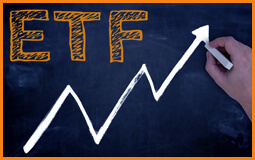What is Nifty 50 Index?
Nifty 50 Index, commonly referred to as Nifty, is the benchmark index that tracks the performance of portfolio of bluechip companies, the largest and most liquid Indian securities. It includes 50 of the all companies listed and/or traded on the National Stock Exchange. Nifty 50 Index, along with the BSE Sensex, are the two leading broad basedmarket indices in India. They are considered to be the barometers of the entire stock market in India. Many mutual fund schemes and Exchange Traded Funds (ETF) have Nifty 50 Index as their benchmark or additional benchmark. Nifty 50 ETFs are among the most popular exchange traded funds.
How is Nifty 50 Index constructed?
The index represents 50 companies selected from the universe of Nifty 100 Index based on free-float market capitalisation and liquid companies having average impact cost of 0.50% or less for 90% of the observations for a basket size of Rs. 10 Crores. The weights of the index constituents are based on free float market capitalization. Free float market capitalization means the market cap of free floating shares, which are shares held by the public. Free float shares are shares which are not held by the promoters and their families, related parties, management of the company and the Government. In free float market capitalization based index, the companies with highest free float market cap will have higher weights in the index. The index is calculated on a real time basis (daily) and rebalanced semi-annually based on data for six months ending January and July. The replacement of stocks in Nifty 50 Index (if any) is generally implemented from the first working day after Futures & Options expiry of March and September. As part of the semi-annual reconstitution of the index, a maximum of 10% of the index size (number of companies in the index) may be changed in a calendar year.
What is the composition of Nifty 50 Index?
Nifty 50 Index covers 13 industry sectors. Among them they cover the core sectors of the economy e.g. power, metals, oil and gas, cement, cement, fertilizers etc. Nifty also cover the large industry sectors like Banking and Finance, Information Technology, Pharmaceuticals, Consumer Goods, Automobiles etc. The chart below shows the industry sector composition of Nifty 50 Index.

Why is Nifty 50 Index important?
.jpg?sfvrsn=a6917c13_2)
Performance of Nifty 50 Index
The chart below shows the performance of Nifty 50 Total Returns Index (adjusted for dividends) over the last 20 years. Over the past 20 years, Nifty 50 TRI has given 14.18% CAGR returns. Over the same period Gold has 12.38% CAGR returns, while Fixed Deposits have given 7.1% average CAGR returns. Clearly, Nifty 50 has been relatively one of the best performing asset classes during this period.

How to invest in Nifty 50 Index?
Exchange Traded Funds (ETFs) are relatively one of the best ways to invest in market indices. ETFs, in their composition, replicate a benchmark index and aim to reduce tracking errors i.e. difference in the performance of the index and performance of the ETF. ETFs do not aim to beat the index but merely replicate their performance. Since ETFs are passively managed, their cost is relatively lower than that of an actively traded mutual fund scheme. Lower cost will generally result in higher returns for the same level of performance, subject to tracking error
Benefits of Nifty 50 ETF
.jpg?sfvrsn=71508510_2)
Who should invest in Nifty 50 ETFs?
- Investors who want capital appreciation with relatively low volatility.
- Investors who have moderately high risk appetite.
- Investors who have sufficiently long investment tenures, at least 5 years.
- Investors who have demat accounts – you need to have demat accounts to invest in ETFs. If you do not have a demat account, then you can invest in Nifty 50 index funds. Index funds are mutual fund schemes, which are managed exactly in the same way as ETFs. The cost of index funds is generally higher than that of ETFs.
- Investors should consult with their financial advisors before investing.
Articles

Nifty 50 Index
Nifty 50 is the index of 50 largest companies by market capitalization listed on the National Stock Exchange. The weights of the index constituents are based on free float market capitalization. Free float market capitalization means the market cap of free floating shares, which are shares held by the public.
Read MoreVideos
For information on one-time KYC (Know Your Customer) process, Registered Mutual Funds and procedure to lodge a complaint in case of any grievance Click here!
Mutual Fund investments are subject to market risks, read all scheme related documents carefully.

.jpg?sfvrsn=6285e0e8_2)